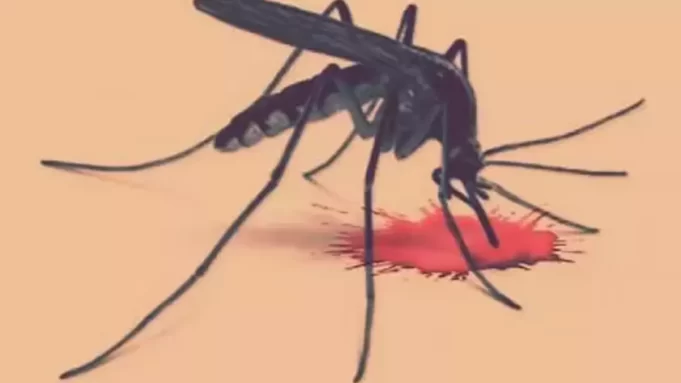As new instances of dengue have been detected in the Jammu division, authorities have warned of the disease’s potential to become a serious problem in the area in the coming months.
To combat this, the government has announced a three-pronged approach to disease management and containment.
25 cases of dengue have been documented in Jammu Division so far this year, with the vast majority occurring in the Jammu district itself, according to a senior health official.His statement that dengue patients’ symptoms are so minor that they can be treated at home has led to the disease’s absence from hospitals.
There would be a three-pronged approach to dengue control and management, according to the source, who claimed this was at the instruction of the Administrative Secretary to Government, Health and Medical Education.
According to him, the Jammu Municipal Corporation’s trash trucks will be used in an intensive information and education communication (IEC/BCC) campaign, and monitoring efforts are being ramped up in the districts to catch any cases of vector-borne illnesses.
On top of that, he said that a thorough strategy for integrated vector management (IVM) is being planned for the identification and prioritising of high-risk regions.
According to the health department official, domestic breeding checkers are being engaged to help in the elimination of vectors as a potential human health risk.
A special dengue ward, complete with blood component facilities, has been designated, he added, and all Government Medical College (GMC) principals and Chief Medical Officers/Medical Superintendents have been instructed to implement this measure. District hospitals in Ramban and Reasi have been tasked with establishing dengue diagnostic services, and he stated the relevant authorities have been ordered to begin training workers immediately.
He informed that “CMOs and BMOs have been directed to enhance surveillance activities of Vector Borne Diseases, and identify high-risk areas strategies so that the integrated vector management may be worked out.” This includes requiring private laboratories and nursing homes to upload data to the integrated Health Information Platform (IHIP).
The Malariologist and the MD of the JKMPCL have been tasked with making sure that the necessary supplies are on hand.
Last year, almost 8,000 individuals were tested positive for dengue in J&K, and 18 died from the disease.
Mosquitoes of the genus Aedes (Ae. aegypti or Ae. albopictus) are the primary vectors of human infection with dengue viruses. Half of the world’s population, or roughly 4 billion individuals, are at risk of dengue since they are located in dengue-endemic regions. Wherever the danger is greatest, it is usually the most common cause of sickness. (KNO)










